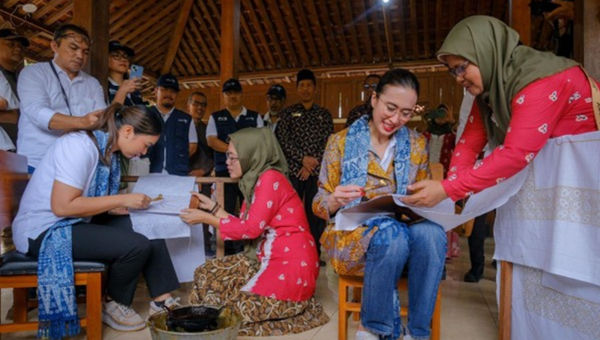In response to Donald Trump slapping a 32% reciprocal tariff on Indonesia, the Indonesian government has assigned Coordinating Minister for Economic Affairs Airlangga Hartarto, Minister of Finance Sri Mulyani Indrawati, and Minister of Foreign Affairs Sugiono to negotiate the terms with the US.
As a major driver of Indonesia’s economy, tourism is expected to serve as a tool for economic defense against such trade tariff policies. In 2024, tourism is projected to contribute 5.1% to Indonesia’s GDP, equating to over IDR 1,131 trillion (US$6.71 billion).
In a recent statement, Minister of Tourism Widiyanti Putri Wardhana said Indonesia has the ability to harness the vast potential of the tourism sector as a key source of foreign exchange. The government expects foreign tourist arrivals to reach 14.6–18 million in 2025, while targeting 1.08 billion domestic tourist movements.
"When exports of goods are hit by high tariffs, we must look to other sectors that can serve as a counterbalance. Tourism is a form of service export that is not affected by trade tariff policies. By attracting more international tourists, we can maintain the stability of the Rupiah and our foreign exchange reserves," she added in a written statement.

The Indonesian government urges tourism players to explore and promote tourism villages to evenly distribute economic benefits, reduce dependence on the manufacturing export sector, and tap into untapped tourism potential. Photo Credit: The Ministry of Tourism and Creative Economy of the Republic of Indonesia
Minister Widiyanti also called on stakeholders to focus on three key strategies in response to the shifting global trade landscape: capitalising on emerging global trends, enhancing Indonesia’s position as a world-class tourism destination, and promoting sustainable tourism initiatives.
The Ministry of Tourism also encourages industry players to explore Indonesia’s vast tourism potential, including the promotion of tourism villages and tourism-based economic activities throughout the country.
“This initiative aims to evenly distribute economic benefits and reduce dependence on the manufacturing export sector, which is affected by tariffs,” said Minister Widiyanti.
Additionally, the government recommends that tourism businesses prioritise the development of high-quality tourism experiences across all destinations. Data shows that tourists who seek quality experiences are more resilient to global price fluctuations.
The Ministry remains optimistic about the opportunities available for such tourism businesses. Government support for this sector is demonstrated through its flagship programme, Upgraded Tourism, which focuses on key areas such as maritime, gastronomy, and wellness tourism.
With these strategies in place, Minister Widiyanti expressed confidence that the tourism sector will not only support the national economy but also elevate Indonesia’s status as a leading global destination.